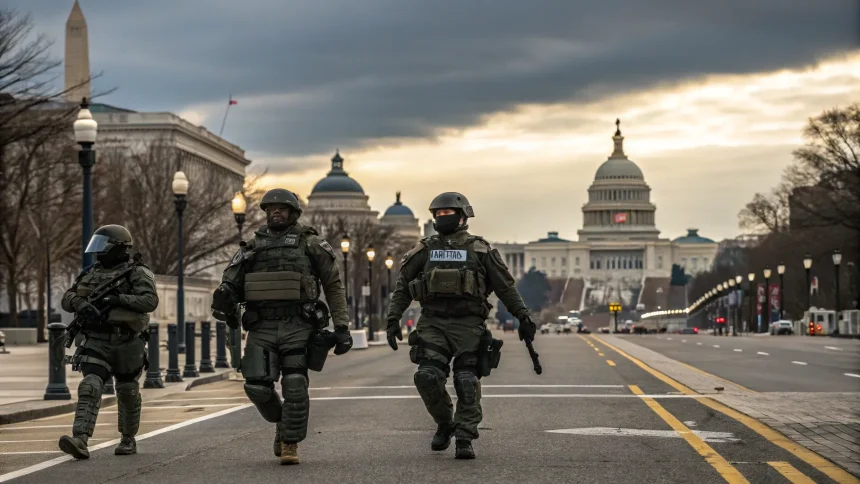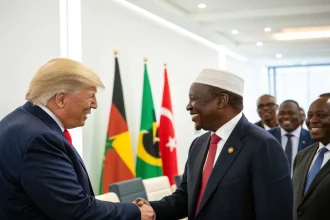Armed National Guard troops are patrolling Washington, D.C., as part of an unprecedented federal takeover of the city’s police department. This development comes as crime management has emerged as a relative strength for President Donald Trump, according to recent reports.
The military presence in the nation’s capital represents a significant shift in federal oversight of local law enforcement, raising questions about jurisdictional authority and the relationship between federal and municipal governance in Washington.
Federal Control of DC Police
The federal government has assumed control of the Washington, D.C. police department in a move that has no historical precedent. This action involves the deployment of National Guard personnel throughout the city, creating a visible military presence in civilian areas.
The troops, carrying weapons and operating under federal authority, are conducting regular patrols alongside or in place of traditional police officers. This arrangement fundamentally alters the security structure of the District of Columbia, which already has a unique governance relationship with the federal government.
Unlike other American cities, Washington, D.C. exists under congressional oversight despite having its own local government, making this federal intervention particularly complex from a legal and administrative perspective.
Crime as a Political Asset
According to reports, President Trump has found crime management to be a favorable political issue. The administration appears to be positioning its approach to law enforcement and public safety as a strength, particularly in the context of the current situation in Washington.
The federal takeover of police functions in the nation’s capital may be viewed through this political lens, as the president seeks to demonstrate decisive action on crime and security matters. This approach aligns with previous messaging from the administration regarding law and order.
Political analysts note that public safety concerns often resonate with voters across the political spectrum, making crime policy a potentially valuable platform for any administration.
Constitutional and Legal Questions
The deployment of military personnel for domestic law enforcement raises significant constitutional questions. The Posse Comitatus Act generally limits the federal government’s ability to use military personnel to enforce domestic policies, though exceptions exist for the National Guard under certain circumstances.
Legal experts are examining whether this takeover falls within established parameters for federal intervention in local policing. The District of Columbia’s unique status complicates these considerations, as it operates under different rules than fully autonomous states.
Civil liberties organizations have expressed concern about the precedent this action might set for federal control of local police departments in other jurisdictions, even as supporters argue the measure is necessary for public safety.
The situation remains fluid as local officials, federal authorities, and legal experts navigate this unprecedented arrangement. The long-term implications for policing in Washington and the balance of power between local and federal authorities remain to be determined as this extraordinary security measure continues.









